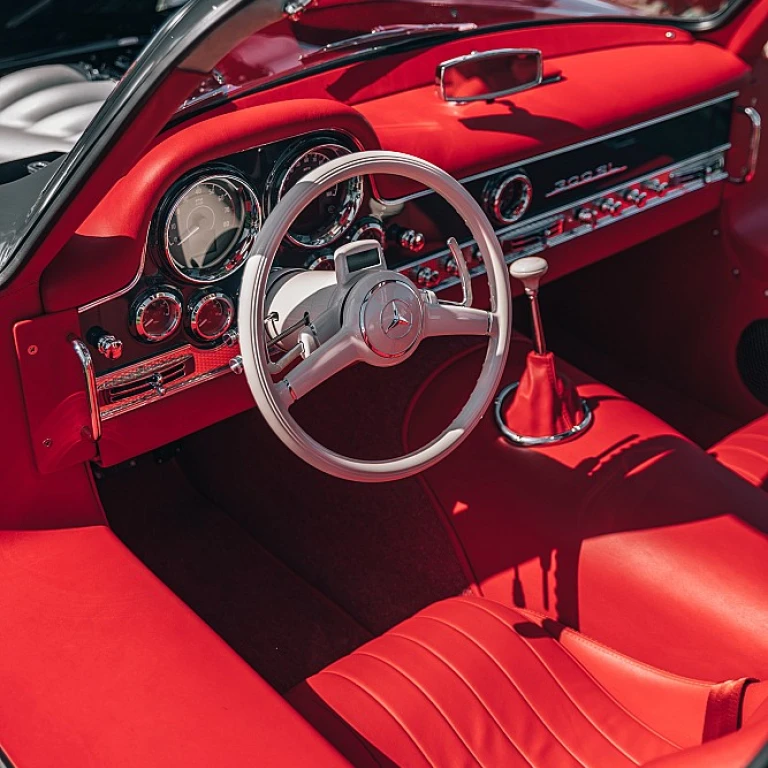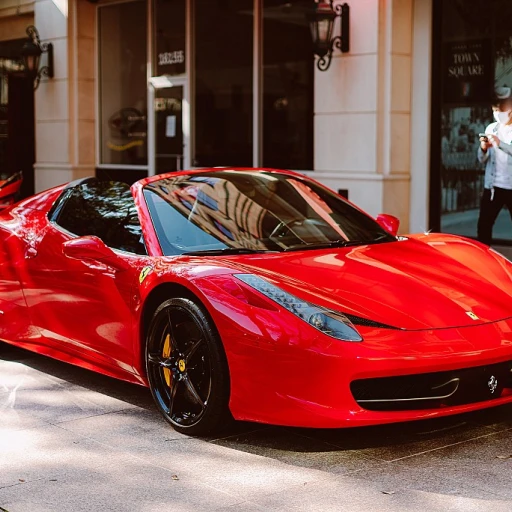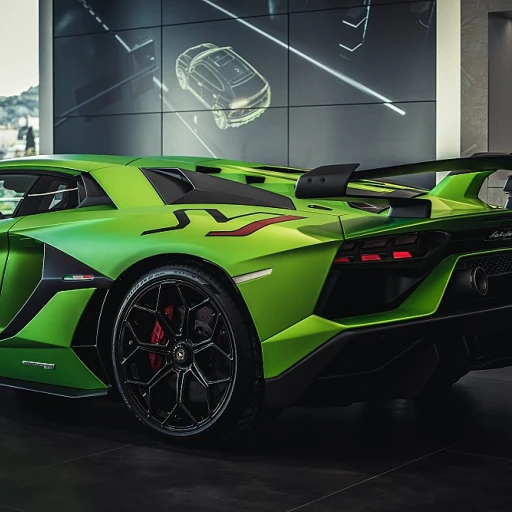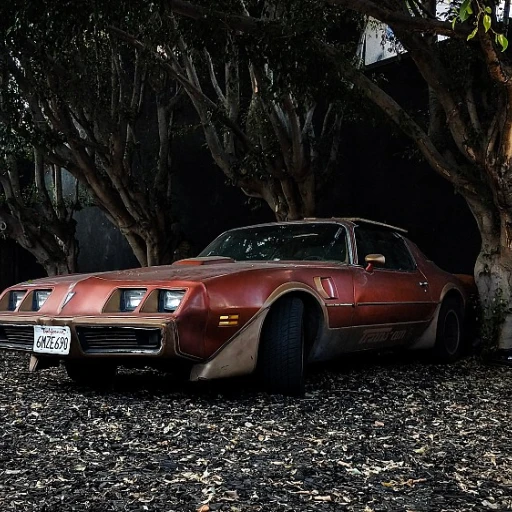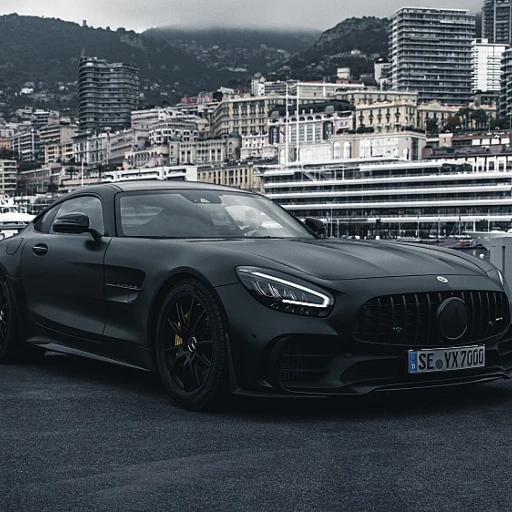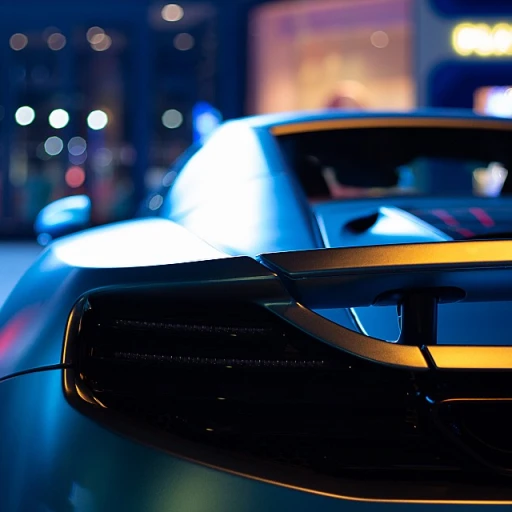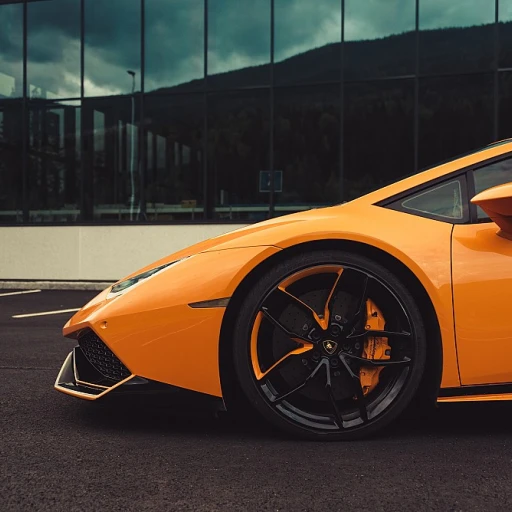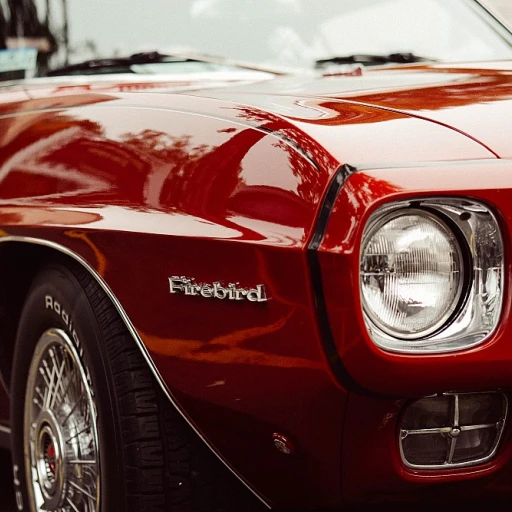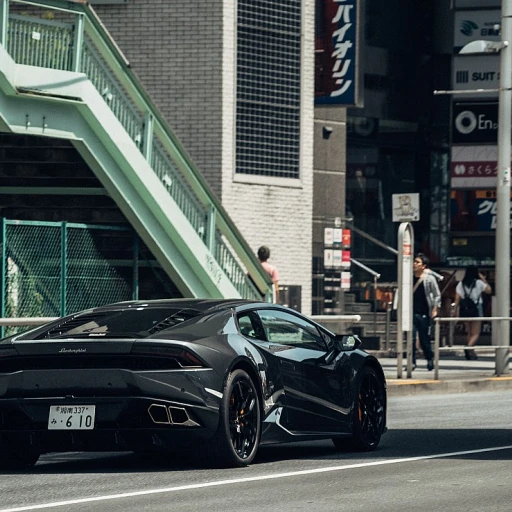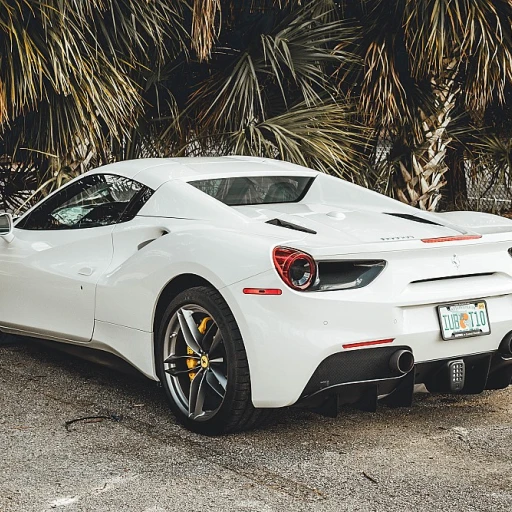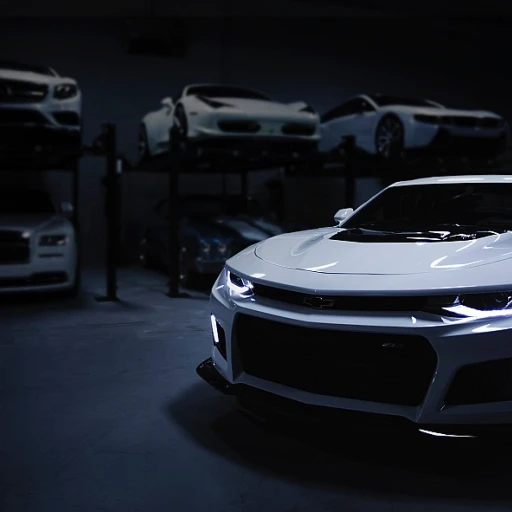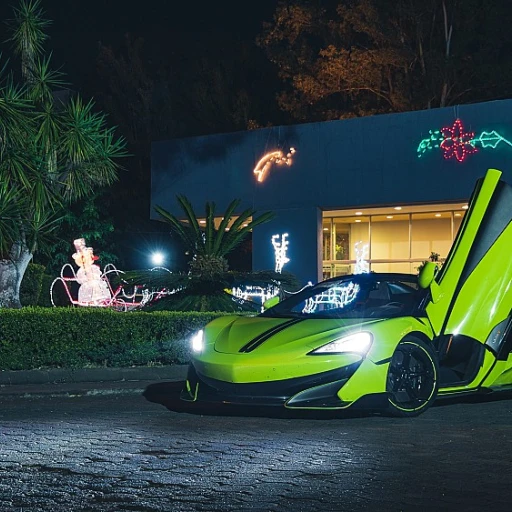
Changing perceptions of luxury in the electric era
Luxury Reimagined: The New Electric Statement
For decades, luxury cars have been synonymous with powerful engines, plush interiors, and a certain unmistakable presence on the road. But as the world pivots toward sustainability, the definition of luxury is evolving. Today, electric vehicles (EVs) are not just about environmental responsibility—they are fast becoming the ultimate status symbol for discerning drivers who demand the best in innovation and exclusivity.
Brands like Tesla, Mercedes Benz, BMW, Audi, and Lucid are leading this transformation. Their electric models, from the Tesla Model S to the Mercedes Benz EQS and the Lucid Air, are redefining what it means to own a luxury car. These vehicles blend silent, instant power with cutting-edge design and technology, making them highly desirable for those who want more than just a car—they want a statement.
- Exclusivity: Limited production runs and bespoke options make luxury electric cars stand out in any collection.
- Innovation: Features like advanced infotainment, autonomous driving, and personalized interiors set these vehicles apart from traditional luxury sedans and SUVs.
- Sustainability: Driving an electric vehicle signals a commitment to the environment, now seen as a mark of sophistication and forward-thinking.
Forums and reviews consistently highlight the shift in perception among luxury car owners. No longer is the growl of a V8 the only sign of prestige—now, the whisper-quiet acceleration of a best electric vehicle is just as impressive. The price and starting MSRP of these cars reflect their premium positioning, but owners see value in the full range of benefits, from lower running costs to exclusive charging services.
This new era of luxury is about more than just the car itself. It’s about embracing a lifestyle that values technology, sustainability, and individuality. For a deeper look at how green innovation is shaping the luxury segment, read about the allure of green sports cars and discover how electric vehicles are setting new standards for opulence on wheels.
Performance without compromise: electric powertrains
Unleashing Instant Power and Refined Performance
Electric luxury cars are changing the way enthusiasts experience performance. Unlike traditional combustion engines, electric powertrains deliver instant torque, resulting in rapid acceleration that feels both effortless and exhilarating. The tesla model lineup, for example, is renowned for its ability to go from zero to sixty in a matter of seconds, rivaling or surpassing many supercars. This immediate response is not just about speed; it’s about the smooth, silent surge that defines the new era of luxury driving.
Brands like mercedes benz with the benz eqs, bmw with their i7, and audi with the audi tron series are setting new standards for what a luxury electric vehicle can achieve. The lucid air and rolls royce spectre are also pushing boundaries, offering not just impressive range but a level of refinement that appeals to those who expect the best from their luxury car.
- Range: Modern electric vehicles now offer ranges that make them practical for daily use and long-distance travel. The lucid air and tesla models are among the leaders, with some versions exceeding 400 miles on a single charge.
- Driving Dynamics: The low center of gravity, thanks to battery placement, enhances handling and stability. This makes luxury sedans and suvs best in class for both comfort and agility.
- Quiet Comfort: The absence of engine noise means a more serene cabin experience, allowing drivers and passengers to fully appreciate the craftsmanship and technology inside these cars best.
For those comparing starting msrp and price across best electric models, the value proposition is shifting. Owners are not just investing in a vehicle; they’re embracing a new definition of performance that combines power, efficiency, and sophistication. Forums and full reviews highlight how the latest electric cars are not only about sustainability but also about delivering an uncompromised driving experience.
To explore more about the latest trends and innovations shaping this segment, read our in-depth analysis of new luxury cars.
Sustainability as a new status symbol
Sustainability: The New Badge of Prestige
In today’s luxury car market, sustainability is no longer just a buzzword—it’s a core value. For discerning owners, driving an electric vehicle is about more than just performance or comfort; it’s about making a statement. The best luxury electric cars, from the Tesla Model S to the Mercedes Benz EQS and Lucid Air, are setting new standards for environmental responsibility without sacrificing opulence.
- Material innovation: Leading brands like BMW, Audi, and Rolls Royce Spectre are integrating recycled, vegan, and responsibly sourced materials into their interiors. This shift is redefining what it means to own a luxury sedan or SUV.
- Reduced emissions: Electric vehicles (EVs) offer a cleaner alternative to traditional combustion engines. Owners of models like the Audi e-tron or Mercedes Benz EQS can enjoy guilt-free driving, knowing their vehicle contributes less to urban pollution.
- Energy efficiency: The latest electric luxury cars maximize range and efficiency, making them practical for both city commutes and long-distance travel. For example, the Lucid Air boasts one of the best ranges in its class, while maintaining a high level of comfort and technology.
For many, the shift to electric vehicles is also about future-proofing their investment. As regulations tighten and consumer expectations evolve, owning a luxury electric car signals forward-thinking values. The starting MSRP for these vehicles reflects not just advanced engineering, but also the cost of sustainable innovation.
Forums and full reviews consistently highlight how the best electric luxury cars blend eco-consciousness with exclusivity. Whether you’re considering a Tesla, BMW i7, or Rolls Royce Spectre, the message is clear: sustainability is now a status symbol.
For a deeper dive into the engineering that underpins these advancements, read this full review of luxury car engineering and discover how innovation continues to shape the future of luxury vehicles.
Cutting-edge technology and bespoke features
Personalization Meets Innovation
Today’s luxury electric vehicles are more than just a statement of wealth—they are showcases of advanced technology and personalized comfort. Brands like Mercedes Benz, BMW, Audi, and Lucid Air are redefining what it means to drive in style, offering features that go far beyond traditional expectations. The best electric cars now blend cutting-edge digital interfaces with handcrafted interiors, creating a unique blend of sophistication and innovation.
- Immersive infotainment: The latest luxury electric vehicles feature expansive OLED displays, voice-activated controls, and seamless smartphone integration. For example, the Mercedes Benz EQS and BMW i7 offer full-width screens and customizable ambient lighting, turning every journey into a tailored experience.
- Advanced driver assistance: From adaptive cruise control to autonomous parking, electric luxury sedans like the Audi e-tron and Tesla Model S integrate the best safety and convenience technologies. These systems not only enhance comfort but also set new standards for what drivers expect from high-end vehicles.
- Bespoke interiors: Customization is at the heart of luxury. Rolls Royce Spectre and Lucid Air allow owners to select unique materials, from sustainable woods to vegan leathers, ensuring each car is a true reflection of its owner’s taste.
- Soundscapes and serenity: Electric powertrains deliver near-silent operation, and many models, such as the Mercedes Benz EQS, offer customizable sound experiences or active noise cancellation, creating a tranquil cabin environment.
Exclusive Digital Ecosystems
Luxury electric vehicles are not just about the drive—they’re about the entire ownership experience. Many brands now offer exclusive digital services, from remote vehicle management apps to over-the-air software updates that keep the car at the forefront of innovation. Tesla, for instance, is renowned for its continuous software enhancements, while Audi and BMW provide concierge services and curated charging solutions for their electric vehicle owners.
For those seeking the best luxury electric cars, the ability to personalize both the vehicle and the digital experience is becoming a key differentiator. Whether you’re browsing a forum for the latest model updates or reading a full review before selecting your next luxury sedan or SUV, it’s clear that technology and bespoke features are shaping the future of opulence on wheels.
Charging infrastructure and exclusive services
Exclusive Charging Networks and Concierge Services
Owning a luxury electric vehicle is about more than just the car itself. The experience extends to how you power your vehicle and the services that come with it. Brands like Tesla, Mercedes Benz, Audi, and Lucid Air have invested heavily in creating exclusive charging networks and premium support for their customers. These networks are designed to offer fast, reliable charging in prime locations, ensuring that luxury car owners never have to compromise on convenience or comfort.
- Tesla Supercharger: With the Tesla Model S and Model X, owners benefit from the expansive Supercharger network, which is often considered the best in terms of speed and coverage for electric vehicles.
- Mercedes Benz EQS: Mercedes offers access to high-speed charging stations and integrates intelligent route planning, so your luxury sedan is always ready for the next journey.
- Audi e-tron: Audi’s partnership with charging providers ensures that e-tron and e-tron GT drivers have access to a wide range of fast-charging options, which is crucial for those who demand both performance and convenience.
- Lucid Air: Lucid’s luxury electric vehicles come with complimentary charging for a limited time, adding value to the starting MSRP and enhancing the ownership experience.
For many luxury electric car owners, the ability to charge at home with a dedicated wallbox is just as important as public infrastructure. Brands are now offering bespoke installation services, ensuring that your home charging setup matches the sophistication of your vehicle. Some even provide concierge services, where a specialist will handle every detail, from installation to ongoing support.
Tailored Experiences for the Discerning Driver
Beyond charging, luxury brands are redefining what it means to own an electric vehicle. Owners of the Rolls Royce Spectre, BMW i7, and other high-end models can access exclusive forums and communities, where they share insights, read full reviews, and discuss the best electric cars and suvs best suited to their lifestyles. These platforms foster a sense of belonging and provide direct access to expert advice on topics like range optimization, vehicle care, and the latest technology upgrades.
Additionally, many luxury electric vehicles come with premium maintenance packages, roadside assistance, and even on-demand software updates. This ensures that your car remains at the forefront of innovation, whether you drive a Mercedes Benz EQS, Audi e-tron, or Lucid Air. The combination of advanced charging solutions and tailored services is setting a new standard for what it means to drive the best luxury electric vehicles today.
The future of ownership: investment, resale, and legacy
Ownership Experience: Value, Resale, and Legacy
For luxury car owners, the journey doesn’t end at the purchase. The electric era is reshaping what it means to own, invest in, and eventually pass on a luxury vehicle. As electric vehicles (EVs) like the Tesla Model S, Mercedes Benz EQS, Lucid Air, Audi e-tron, and Rolls Royce Spectre become more prominent, the conversation around value and legacy is evolving.
- Investment Potential: The best luxury electric cars are increasingly seen as forward-thinking investments. With rapid advancements in technology and sustainability, models such as the BMW i7 and Lucid Air are holding their value better than many expected. Factors like battery longevity, over-the-air updates, and exclusive features play a significant role in maintaining a vehicle’s appeal.
- Resale Trends: Traditionally, luxury sedans and SUVs faced steep depreciation. However, electric vehicles are changing this narrative. Forums and full reviews indicate that demand for pre-owned electric luxury cars is strong, especially for vehicles with a proven range, reliable charging infrastructure, and a full service history. The Tesla Model X and Mercedes Benz EQS are often highlighted as cars best positioned for strong resale values.
- Legacy and Heritage: Passing down a luxury car has always been about more than just the vehicle itself—it’s about heritage. With electric vehicles, this legacy now includes a commitment to sustainability and innovation. Brands like Rolls Royce and Mercedes Benz are crafting electric models that blend tradition with cutting-edge technology, ensuring that the next generation inherits not just a car, but a statement of values.
When considering the starting MSRP, range, and bespoke features, today’s luxury electric vehicles offer a compelling proposition for those looking to make a lasting impact. Whether you’re eyeing the best electric SUVs, a luxury sedan, or a full-size flagship, the future of ownership is about more than just driving—it’s about shaping a legacy that reflects both personal taste and a forward-looking mindset.

